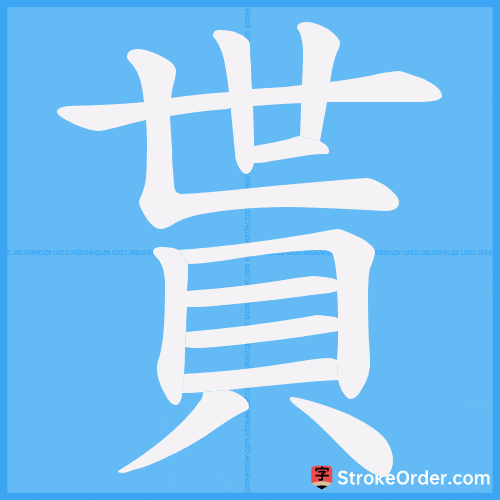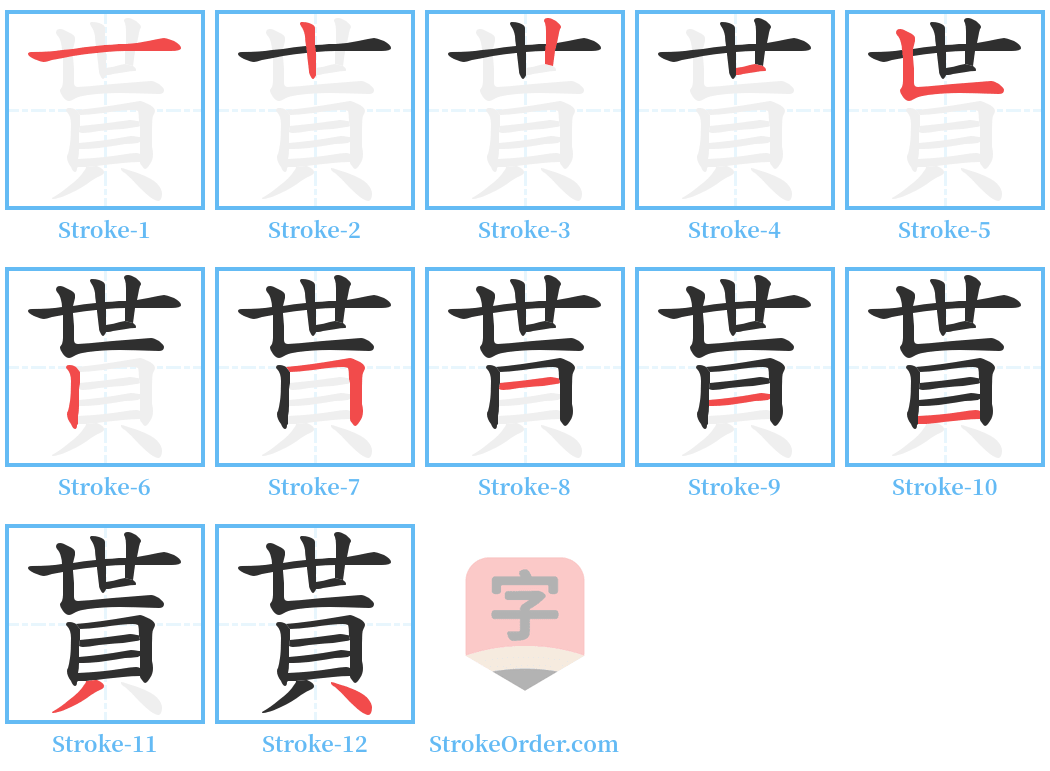貰 Stroke Order
Animated Stroke Order of 貰

Stroke Order Diagrams for 貰

Information of 貰
Pinyin
shì
Radical
貝
Strokes
12 strokes
Usage
★★
Definition
貰
Pronunciation: shì
Part of Speech: verb
Origin: The original meaning refers to borrowing or lending.
Character Formation: Phono-semantic compound, composed of "貝" (shell, representing money) and "世" (世, pronunciation).
1. Borrow or lend (出借,出租)
Example: 器店 (a shop that rents out certain items used for weddings and funerals).
2. Buy or sell on credit (賒欠)
Example: 貸 (to buy or sell on credit).
3. Hire out; rent (租佃,租賃)
Example: 貰錢 (rental fee); 貰廛 (rental land).
4. Mortgage (抵押)
Example: Mentioned in historical texts.
5. Buy (買)
Example: 貰燒酒 (to buy and drink cooked wine).
6. Pardon (寬縱)
Example: 貰赦 (to pardon a punishment); 貰過 (to forgive mistakes); 貰忍 (to forgive and tolerate); 貰死 (to exempt from death punishment).
Historical References:
1. 《說文》: 貰, 貸也。受者曰賒,予者曰貰 (Borrowing and lending: the borrower is called 賒, the lender is called 貰).
2. 《周禮·司市》: 則賒貰而予之 (Thus, it was given on credit and lent).
3. Examples from historical texts highlight usage in various contexts, supporting its meanings and applications throughout Chinese literature.